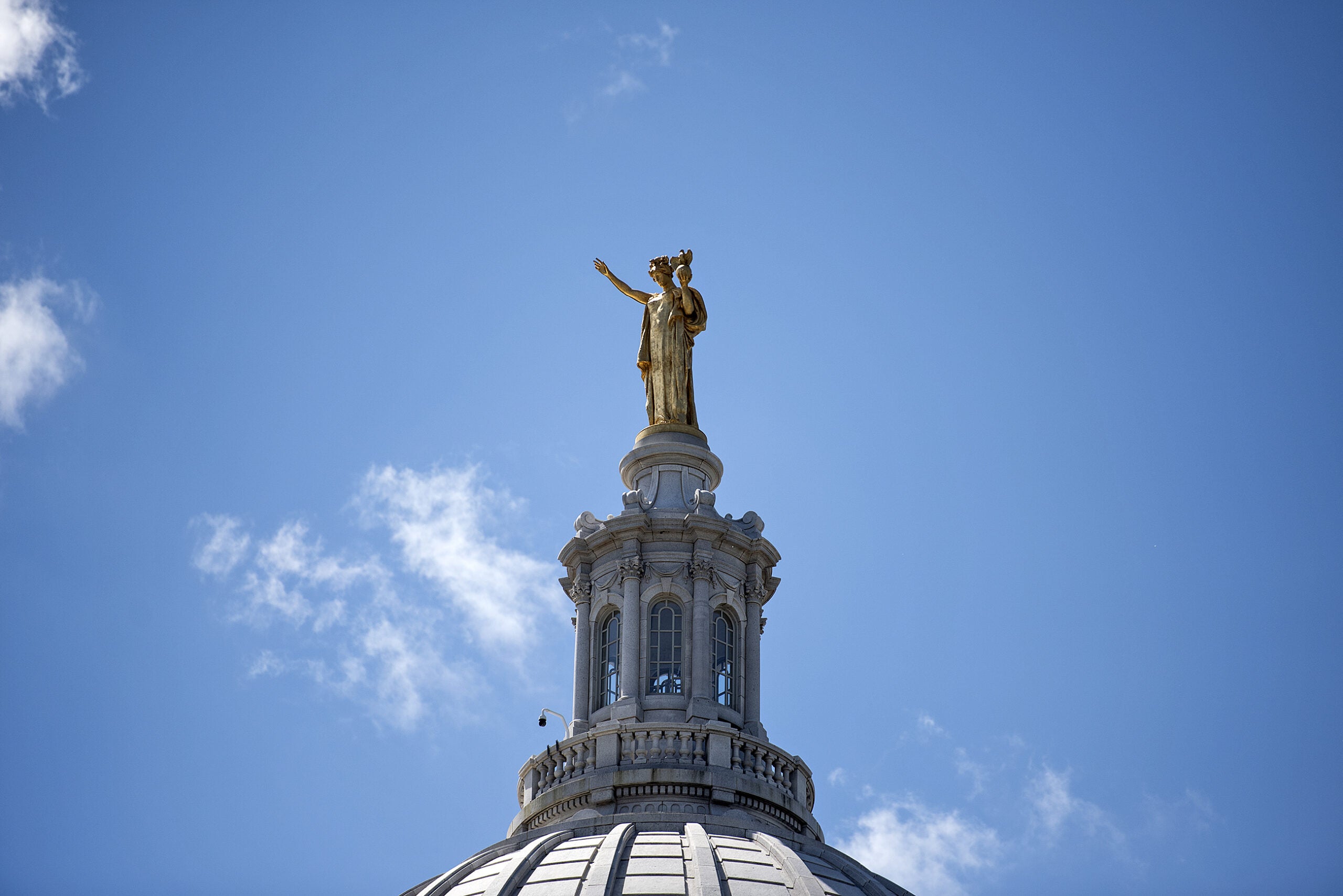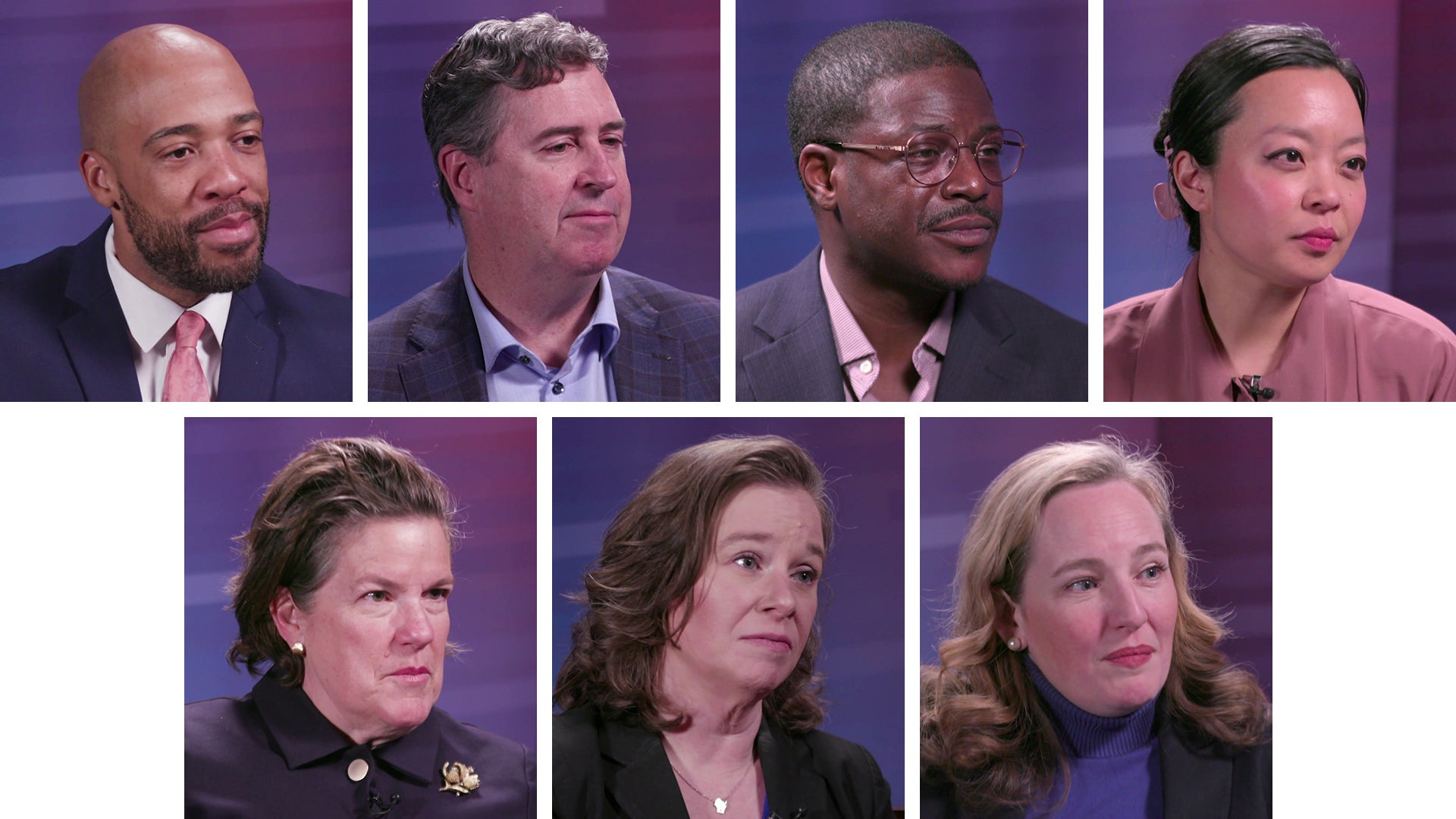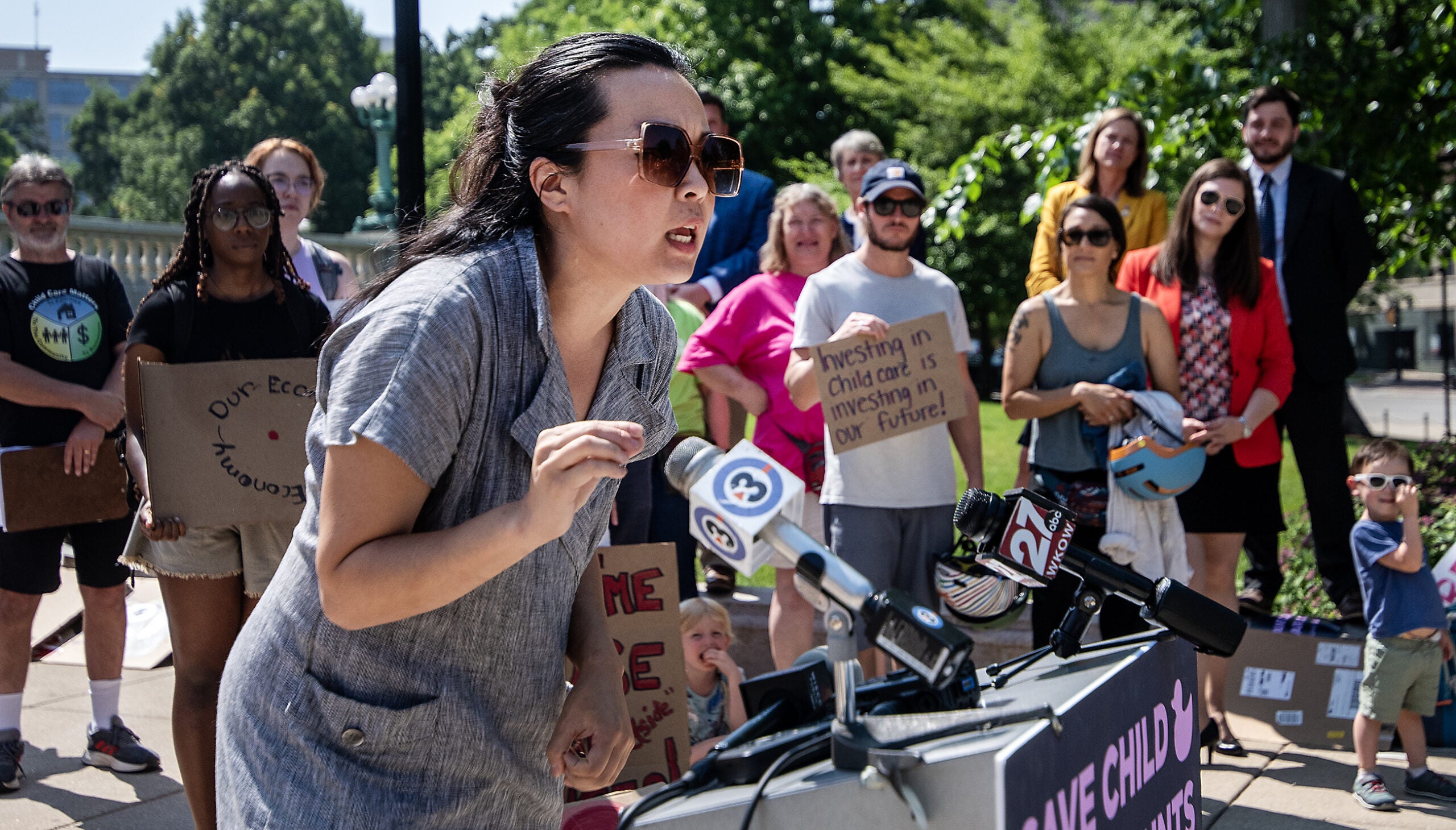Several candidates from minority communities won partisan primary elections on Tuesday, marking new strides toward a state Legislature that could be more representative of Wisconsin’s demographics.
The wins led Lt. Gov. Mandela Barnes to tweet on Tuesday evening, “The next legislative session will be the most diverse in the state’s history.”
Democrats Samba Baldeh, a Gambian-American immigrant, and Francesca Hong, a Korean-American woman, won Madison-area primary races. Republican Julian Bradley, who is Black, won a primary in a southeastern Wisconsin Senate district.
News with a little more humanity
WPR’s “Wisconsin Today” newsletter keeps you connected to the state you love without feeling overwhelmed. No paywall. No agenda. No corporate filter.
All three won in districts considered to be strongly Democratic or Republican, which means they are likely to prevail in November’s general election as well.
Their victories come as the Wisconsin state Legislature has been making slow strides toward including a more diverse set of state lawmakers that better represent Wisconsin’s racial and gender demographics.
Hong believes, if she wins November’s general election, she may be the first-ever Asian American state lawmaker in Wisconsin. She and her campaign team attempted to confirm that by consulting political science scholars and mining public information, but the confirmation is difficult to come by because demographic information isn’t available for all current and former state representatives.
Either way, Hong said she’s proud to represent a community she believes hasn’t seen itself adequately reflected in state government.
“I think when you have representation and you see people in positions of power representing institutions that impact your life directly, there’s a sense that you belong a little bit more,” she said. “And what that does is bring power to an individual to participate.”
“I intend to be a representative to so many voices who haven’t been represented before,” she said.
Hong also said she believes it’s a crucial time for an Asian American voice in the Legislature, as Wisconsin’s Asian American community has seen an uptick in racially-motivated discrimination and attacks during the COVID-19 pandemic.
Local government and university officials in Wisconsin have acknowledged the increase, saying some community members have been targeted because the virus originated in China.
Hong said she believes some members of the Legislature have allowed racist attitudes and actions to grow in the state.
“There are just outright racist legislators right now who are unapologetic about being complicit in these systems of racism and for building policies that harm communities of color,” she said.
Baldeh, who immigrated to the United States from Gambia about 20 years ago, said his 14-point victory is a testament to voters believing in the value of a lawmaker with a certain set of life experiences, perspective and skills.
“It speaks to all the elements I bring to the table, from being from a diverse background, an immigrant, a Black person, but also someone who has brought people together,” he said.
Baldeh said he is “still processing” his victory. He pointed out he has gone from living in a small African village “with a population of less than 100 people” to settling in a Midwestern city with a majority white population. He was elected to the Madison City Council in 2015.
He said he is “very conscious” of the challenges facing the African-American community in Madison and across the state.
“Living in that community, being a member of that community, obviously gives me a deeper understanding of what the issues are,” he said.
However, Baldeh said he hopes, if he’s elected in November, he’s able to advance policies at the Capitol that benefit all communities.
“The reality is that the problems we are facing don’t know ethnicity,” he said.
Bradley, who won the GOP primary in Wisconsin’s 28th Senate District, where Republican Sen. David Craig of Big Bend is retiring, said he doesn’t believe his race was important to people who voted for him.
“I am very proud to potentially be the first Black conservative in the state Senate, but I believe the reason I was chosen in the primary over my opponents is because the people here in the 28th District really trusted that I’m a man of my word,” he said.
Bradley has been a longtime state Republican activist and candidate and was endorsed in the race by former Gov. Scott Walker and former state Sen. Leah Vukmir.
Bradley said he doesn’t think how Wisconsin addresses its well-documented racial inequities needs to create partisan splits.
“I don’t believe any racial issues that we have within our state or our country are defined simply by Republican and Democrat,” he said.
There has been some partisan disagreement over how the Legislature should respond to Black Lives Matter protests in Wisconsin this summer. The Legislative Black Caucus urged Gov. Tony Evers to call the Legislature into a special session to address police training requirements and racial inequities in the state, but Evers declined to do so, citing likely opposition from GOP lawmakers.
Republican leaders have said they are working on proposals related to police and supporting Black communities, but that they are unlikely to be unveiled before November.
According to the U.S. Census Bureau, Wisconsin’s population is 81 percent white, 7 percent Black, 7 percent Hispanic or Latino, 3 percent Asian, and 1 percent American Indian and Alaska Native.
The Legislature doesn’t publish demographic information about lawmakers, but at this point in the current legislative session, there are seven members of the Legislative Black Caucus. That represents about 5 percent of the 132-member Legislature.
Spokespeople for Republican and Democratic legislative leaders said they were not aware of any other current minority community caucuses.
According to a 2015 study from the National Conference of State Legislatures and the Pew Charitable Trusts, at the time 83 percent of Wisconsin state lawmakers were white, 5 percent were Black and 2 percent were Hispanic or Latino.
Wisconsin Public Radio, © Copyright 2026, Board of Regents of the University of Wisconsin System and Wisconsin Educational Communications Board.





